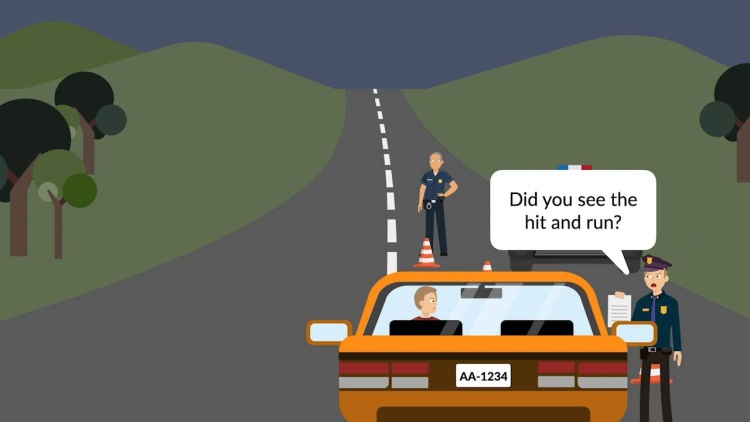Illinois v. Lidster
United States Supreme Court
540 U.S. 419, 124 S. Ct. 885, 157 L. Ed. 2d 843 (2004)
- Written by Matthew Kay, JD
Facts
On August 23, 1997, an unknown motorist hit and killed an elderly postal employee on an Illinois highway. The accident occurred at night, and the motorist drove off without identifying himself. One week later, the local police set up a highway checkpoint in roughly the same location and at the same time as the accident for the purpose of finding out more about the hit-and-run. Police blocked the highway, forcing the traffic to slow down, and detained each car for about 10 to 15 seconds. Officers asked each vehicle’s occupants if they knew anything about the hit-and-run accident and distributed a flyer that contained news of the accident. Robert Lidster (defendant) was driving his minivan toward the checkpoint but suddenly swerved before the checkpoint and narrowly missed an officer. An officer smelled alcohol on Lidster’s breath and administered a sobriety test, after which Lidster was arrested. Lidster was tried and convicted in state court for driving under the influence of alcohol. Lidster claimed that his seizure was unlawful under the Fourth Amendment, and the Illinois Supreme Court agreed, relying on the decision in City of Indianapolis v. Edmond, 531 U.S. 32 (2000), which it said governed this case. The United States Supreme Court granted certiorari.
Rule of Law
Issue
Holding and Reasoning (Breyer, J.)
Concurrence/Dissent (Stevens, J.)
What to do next…
Here's why 907,000 law students have relied on our case briefs:
- Written by law professors and practitioners, not other law students. 47,100 briefs, keyed to 996 casebooks. Top-notch customer support.
- The right amount of information, includes the facts, issues, rule of law, holding and reasoning, and any concurrences and dissents.
- Access in your classes, works on your mobile and tablet. Massive library of related video lessons and high quality multiple-choice questions.
- Easy to use, uniform format for every case brief. Written in plain English, not in legalese. Our briefs summarize and simplify; they don’t just repeat the court’s language.





